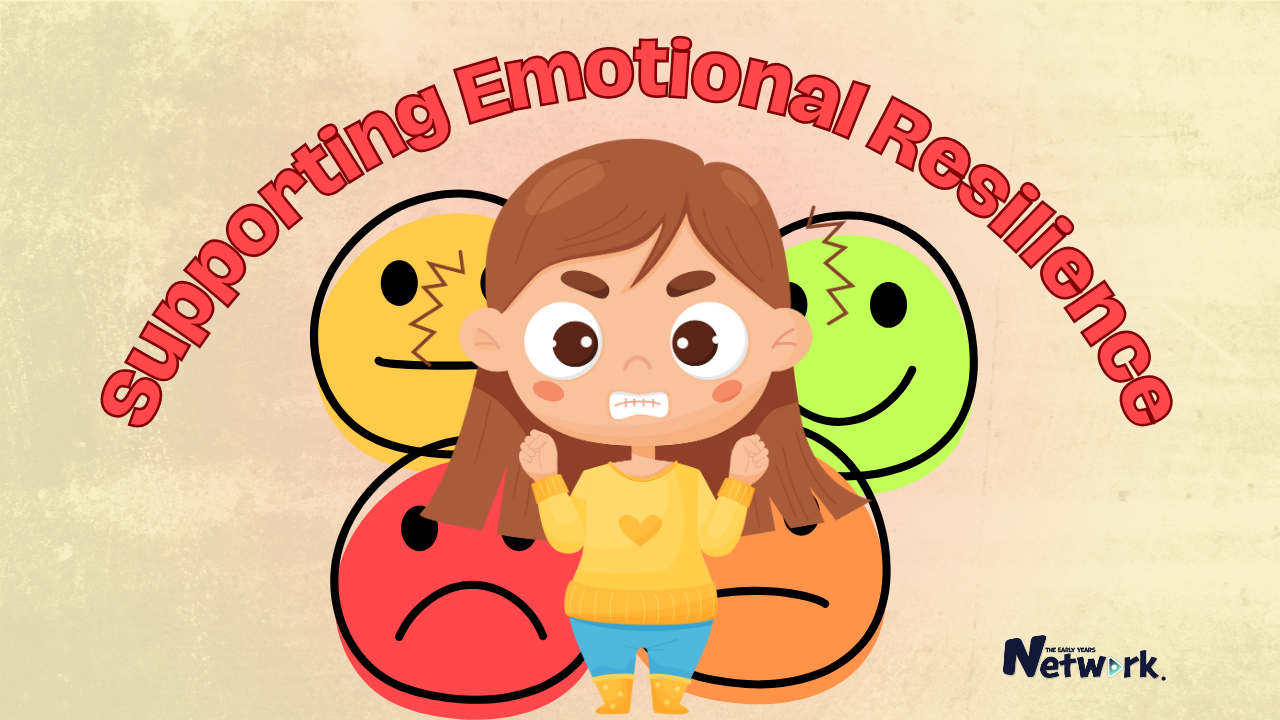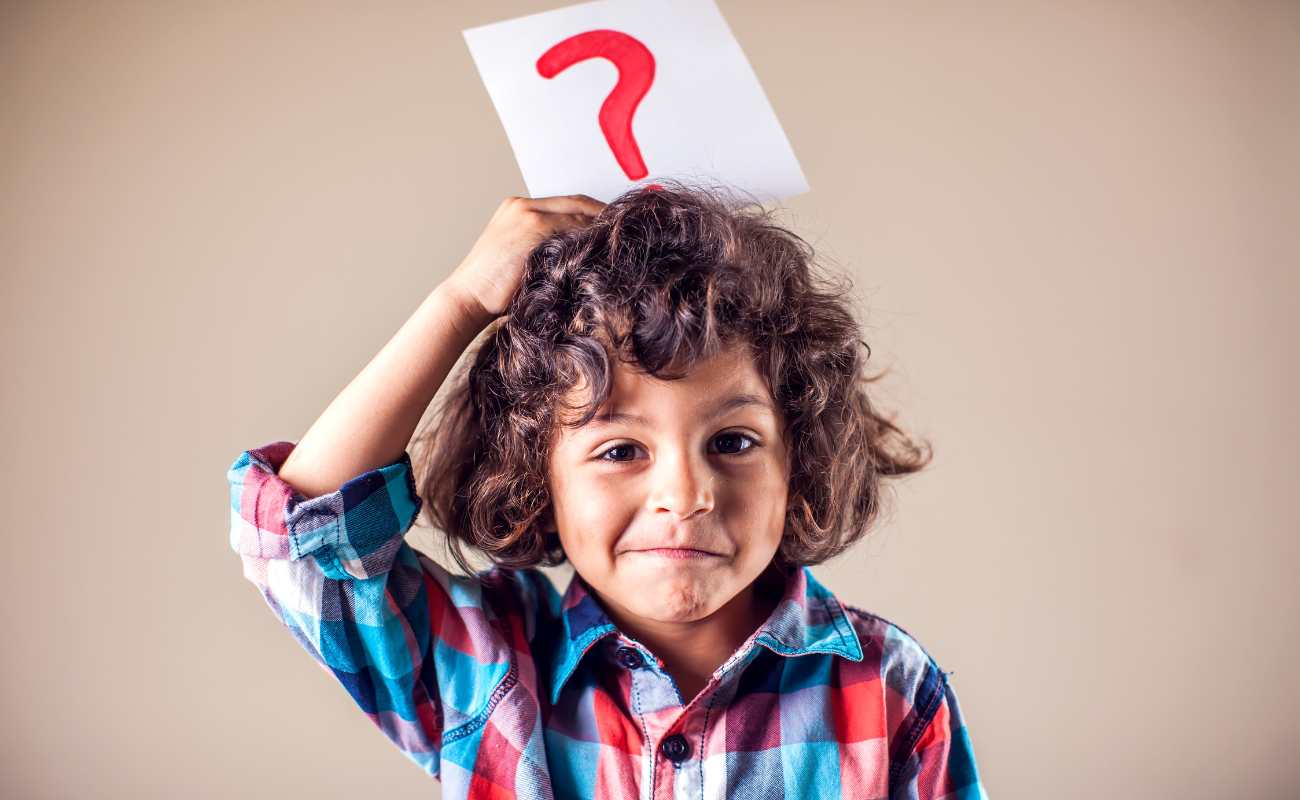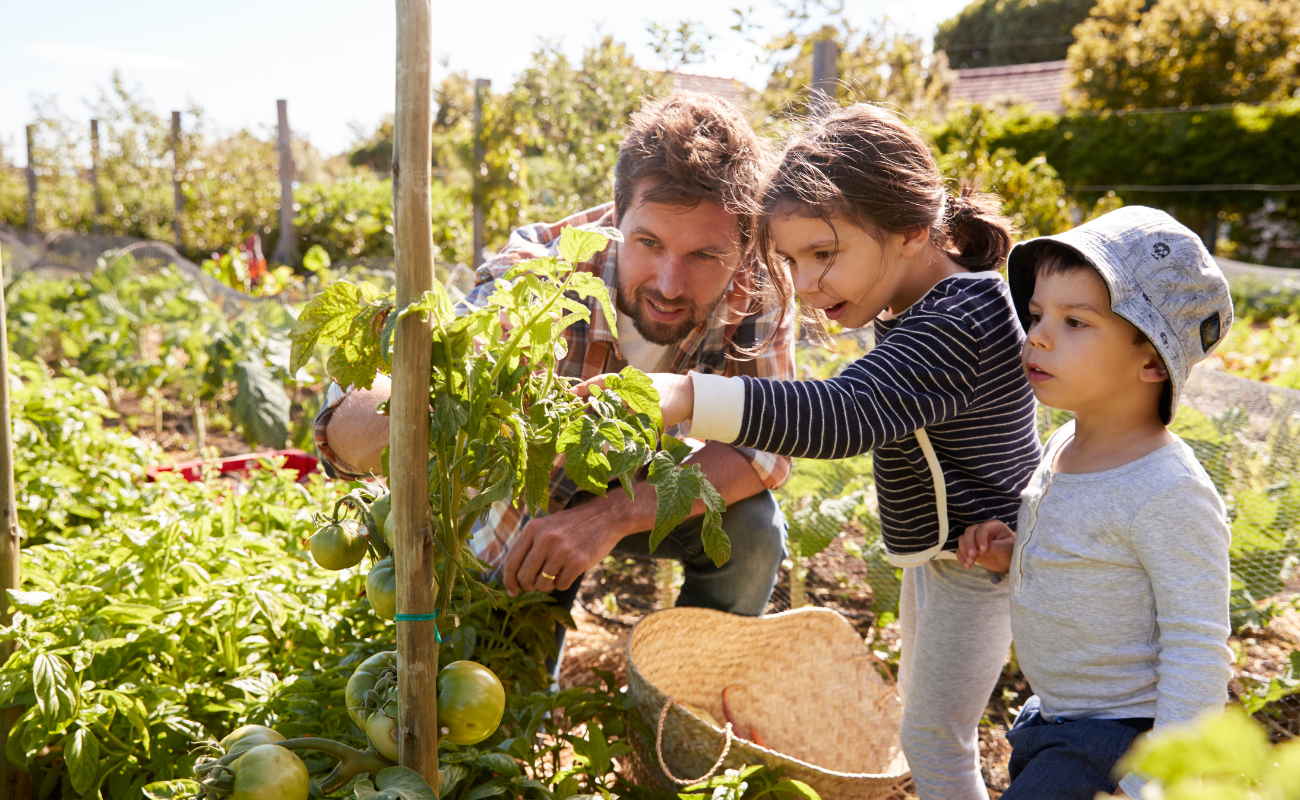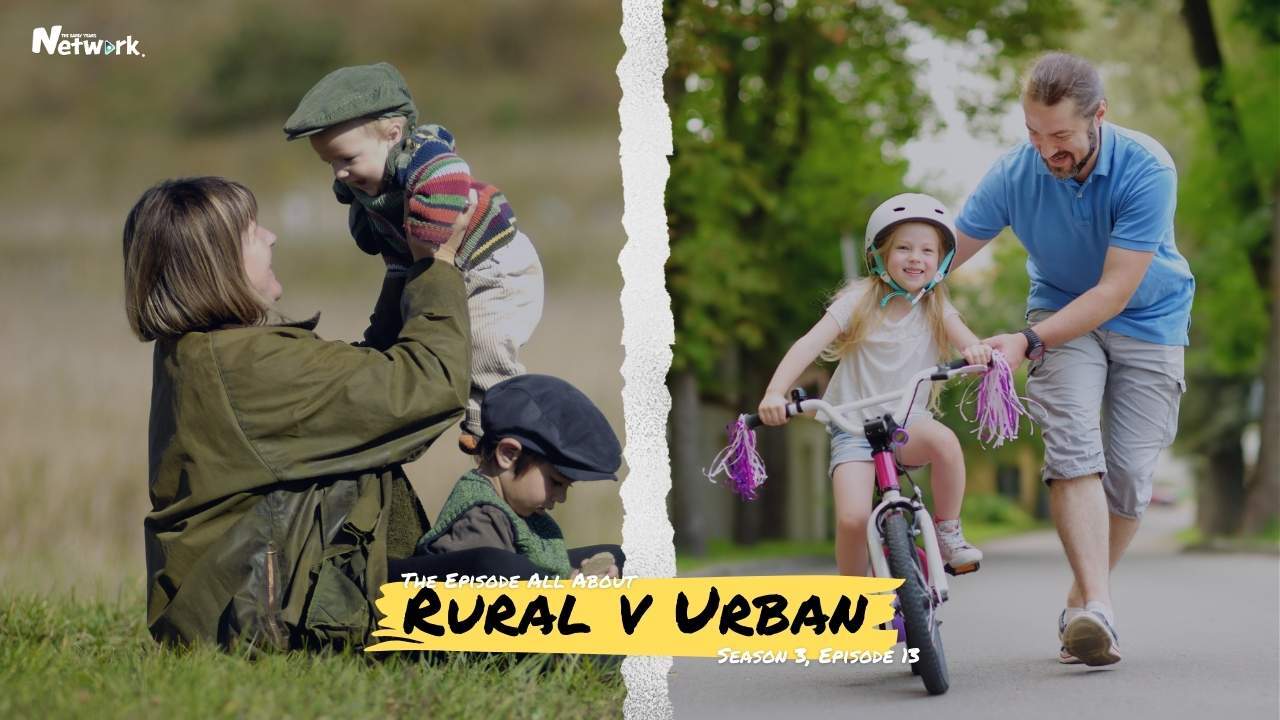Building Strong Foundations for Wellbeing and Success
Across the Early Years landscape there is growing recognition of the importance of supporting children's emotional resilience ahead of educational tick listing and harsh ‘behavioral’ policies and rules. As early years professionals you hold such a powerful role within young children’s lives and have such an impact on an individual’s future outcomes and general happiness. Supporting children to secure the skills necessary to regulate themselves and develop a sense of agency is imperative and should be at the forefront of all early year’s settings curriculums across the globe. So, in this article we’ll explore the concept of emotional resilience in early childhood and provides practical strategies for building strong foundations for children's wellbeing and success. By understanding the factors that contribute to emotional resilience and implementing targeted interventions, educators and caregivers can empower children to navigate challenges and thrive in their early years.

The Significance of Emotional Resilience
Emotional resilience refers to a child's ability to adapt and cope with stress, adversity, and setbacks. It is a crucial aspect of their overall wellbeing and development. Research has shown that children with higher levels of emotional resilience are more likely to have positive mental health outcomes, stronger social relationships, and better academic performance.
“Learning to manage one’s emotions occurs over time as a result of complex interactions both within and external to the infant. What is of great importance during this rapid time of growth and change is how the child’s varied (and often intense) emotional states are recognised, acknowledged and nurtured by significant adults. “ – Mine Conkbayir
We are all born with the capacity for emotional resilience but each individuals capacity and overall development relies upon our external factors, caring relationships and cognitive development over time.
Self-Regulation is king
“Self-regulation is the greatest gift we can give to children. Children who experience nurturing and stable caregiving, go on to develop greater resilience and the ability to self-regulate uncomfortable and overwhelming emotions.” As Mine Conkbayir brilliantly describes, developing self-regulation has to be at the very forefront of everything we do! Constantly through our environments, relationships, interactions and play we should be sowing the seeds of self-regulation through co-regulation strategies and parent partnerships. Understanding self-regulation and how you can help children develop these crucial emotional skills should be an absolute bedrock of all early year’s practice. Without strong self-regulatory skills, environments and relationships that promote inner security/comfort and emotional resilience, all other learning goals and educational components go out of the window. What good is being able to write their name if a child is suffering from unnecessary stresses and is so easily dysregulated?

Acknowledging and Validating Emotions
One key aspect of supporting emotional resilience is acknowledging and validating children's emotions. By creating a safe and supportive environment where children feel heard and understood, educators and caregivers can help children develop a healthy emotional vocabulary and learn to regulate their emotions effectively. This can be achieved through active listening, empathy, and providing opportunities for children to express their feelings. It shows empathy and helps children feel seen and validated, which is crucial for their emotional development.
Promoting Positive Relationships
Another important factor in building emotional resilience is the presence of positive and nurturing relationships. Strong connections with caring adults, such as parents, teachers, and caregivers, provide children with a sense of security and support. These relationships serve as a buffer against stress and adversity, allowing children to develop resilience and the ability to form healthy relationships in the future.
Developing Coping Strategies
Teaching children effective coping strategies and modelling these through co-regulation and emotional coaching is essential for building emotional resilience. By equipping children with a toolkit of healthy coping mechanisms, educators and caregivers empower them to manage stress and regulate their emotions. These strategies can include deep breathing exercises, mindfulness techniques, engaging in physical activity, and encouraging reflective thinking.

Emotion Coaching
When children become dysregulated, they need to be returned to a relaxed and calm emotional state before adult interaction of reasoning and teaching can even begin to enter the equation. Empathy must come first through ‘emotional first aid’ that can come in many different shapes and signs that will largely be determined by the emotional makeup and characteristics of the child in question. From quiet and calming safe havens to attunement from a practitioner with strong emotional bonds with the child. Once the child has calmed, they will have far more success in utilising their ‘Upper Brain’ and unlocking reasoning skills and logical processing.
Mine Conkbayir describes ‘Emotional Coaching’ as providing effective strategies for practitioners to help children self-regulate by;
- Triggering a calmer response through empathetic support
- By assisting /co-regulating young children to self-soothe and raising their awareness of their own emotional state.
- Using the emotional moment as an opportunity to scaffold the young children’s self-management of their emotions and behaviour.
By unlocking emotional coaching skills within our teams, we open up the door for far better co-regulating practice through helping children step by step at times of stress and dysregulation (ie when they most need us). It’s important to remember though that this practice is not corrective or reprimanding, instead it’s an opportunity to sooth children, provide them with emotional first aid, provide empathy, demonstrate co-regulation strategies, and then tutor to help children better understand their emotions and emotional responses, as well as, developing strong emotional bonds and strengthening caring relationships. Emotional coaching works, it just takes our time, effort and understanding!
Fostering a Growth Mindset
A growth mindset is a belief that abilities and intelligence can be developed through effort and practice. By promoting a growth mindset, educators and caregivers encourage children to embrace challenges, persist in the face of setbacks, and view mistakes as opportunities for learning and growth. This mindset cultivates resilience by fostering a belief in one's ability to overcome obstacles and achieve success. It's important to create an environment where children feel safe to take risks and learn from their mistakes.
Encouraging Problem-Solving Skills
Problem-solving skills are essential for developing emotional resilience. By providing children with opportunities to solve age-appropriate problems, educators and caregivers help them develop critical thinking skills, adaptability, and a sense of autonomy. Encouraging children to brainstorm solutions, evaluate different options, and reflect on the outcomes fosters resilience and empowers children to take control of challenging situations.
Building a Calming Environment
Your environments can have a major impact on dysregulating children with overstimulation and stressful situations as a result of excess noise or visual stimulation, having to sit still, cluttered classrooms, or lack of stimulation and movement. Adapting your environment to ensure your child have a positive emotional response to their surrounding and the situation we place them in is a crucial step to helping develop self-regulation and emotional resilience.
It is crucial that you understand your children’s emotional triggers and act responsively to avoid placing them into contexts that are likely going to cause dysregulation and upset. Moving forward reflect on your own environments, do they provide children with the opportunity to move around freely and explore their own innate curiosity and ideas? Enable children to freely follow their own line of inquiry with open ended resources and plentiful calm space to engage with their own creativity and exploration.

Providing a Playful and Stimulating Environment
Play is a natural and powerful tool for promoting emotional resilience. A playful and stimulating environment encourages children to explore, take risks, and learn from their experiences. By providing opportunities for imaginative play, problem-solving games, and social interactions, educators and caregivers create an environment that fosters creativity, resilience, and emotional growth.
Self-Care for Educators and Caregivers
Supporting emotional resilience in children requires educators and caregivers to prioritize their own self-care. By taking care of their physical, mental, and emotional well-being, they can model healthy coping strategies and provide a nurturing environment for children. Engaging in activities that promote relaxation, seeking support from colleagues, and practicing self-reflection are essential components of self-care.
Case Study - The Highfield Resilience Tracker
Once of the most inspiring ‘real world’ examples of effective resilience understanding, practice and training comes from Highfield Nursery School and Children’s Centre and the work of Liz Newton. They’ve developed an impressive framework that allows practitioners and parents to view resilience and how resilience develops within children across three simple categories (I have, I am, I can). Each category highlights a significant component of building resilience within children and helps clearly develop an overall, holistic image of a child’s resiliency.
Some of the common areas of focus for Highfield Nursery School and Children’s Centre in developing emotional resilience with children in early childhood can be found below;
- Building a supportive, caring relationship with parents
- Ensuring L felt safe, secure, listened to and accepted
- Offering positive role models for L
- Co-regulating and verbalising L’s feelings
- Growth mind set ethos
- Encouraging ‘I Can’ attitude to challenges
- Key person and other staff gave L the time he needed
Conclusion
Supporting emotional resilience in early childhood is a multifaceted and essential aspect of children's development. By acknowledging emotions, promoting positive relationships, teaching coping strategies and co-regulation, fostering a growth mindset, encouraging problem-solving skills, building a supportive community, creating a playful environment, and prioritizing self-care, educators and caregivers can lay the foundation for self-regulation and children's emotional resilience. Investing in these strategies not only enhances children's wellbeing but also equips them with the tools they need to thrive in their future endeavors.
Remember, building emotional resilience is a journey, and each child's experience is unique. By providing a nurturing and supportive environment, educators and caregivers can make a lasting impact on children's lives, empowering them to overcome challenges, develop strong emotional foundations, and achieve success.



Comments 0
Leave a comment
Only your name will be published. Required fields are marked *